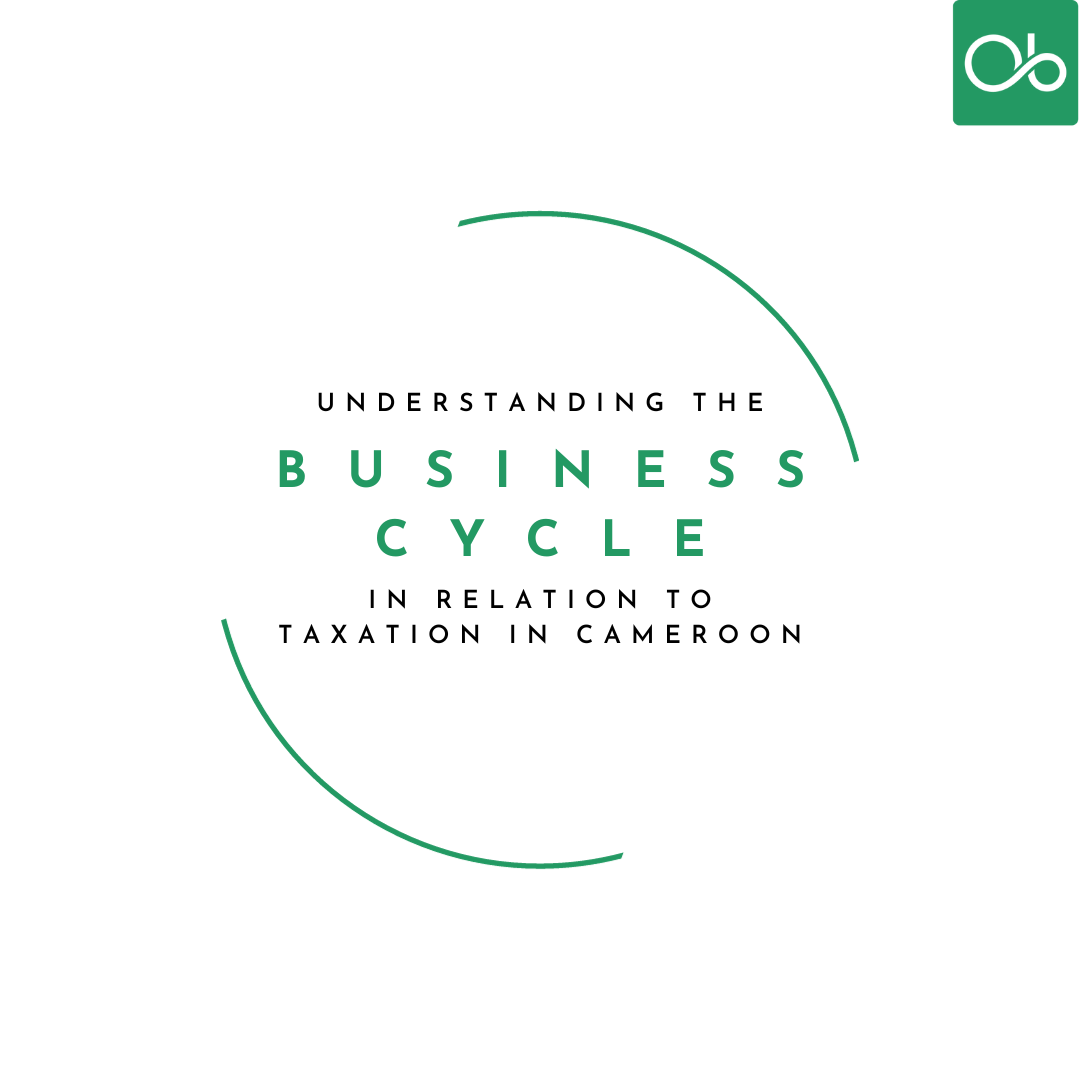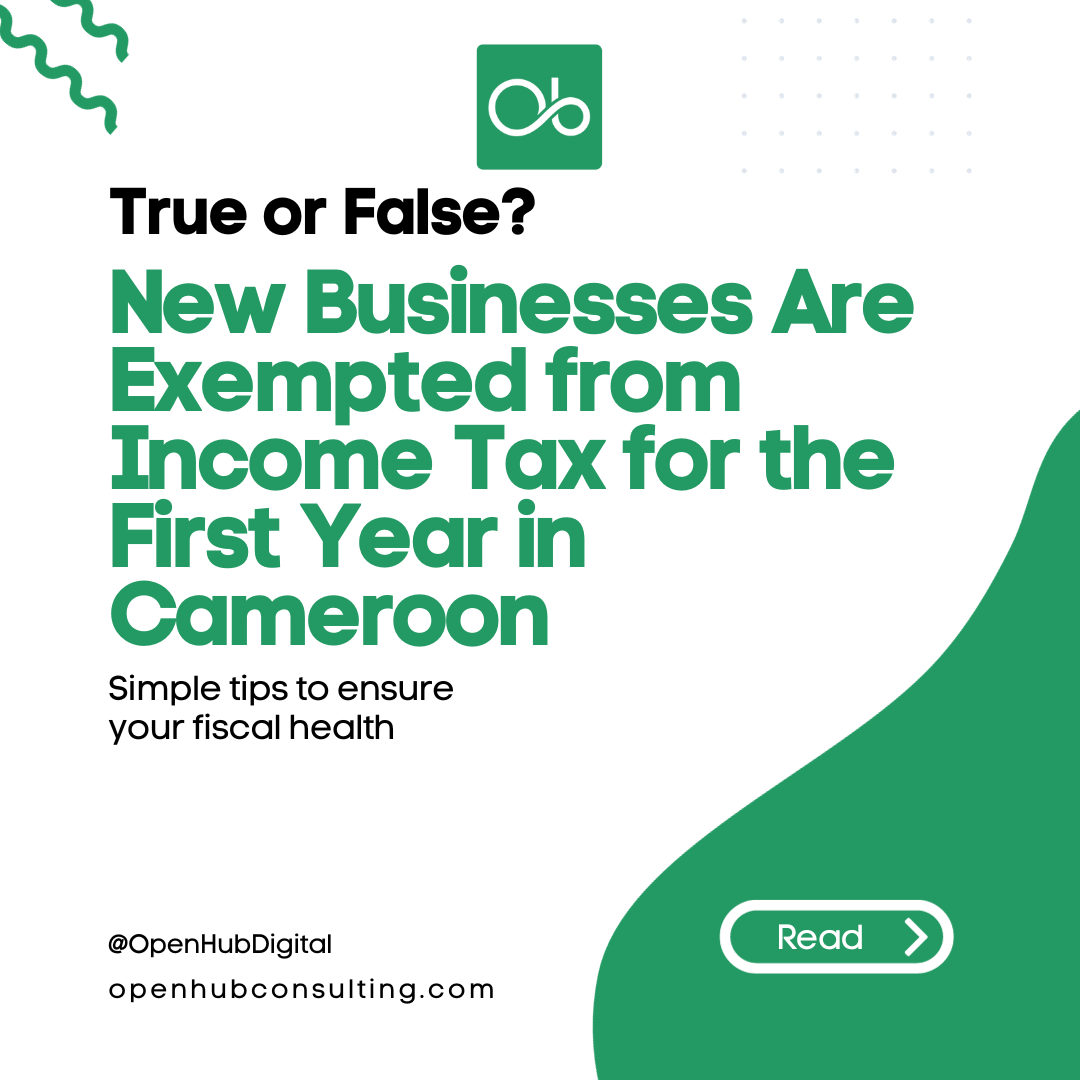
Reserved Business Activities and Authorization Requirements in Cameroon
October 30, 2023
Understanding the Business Cycle in Relation to Taxation in Cameroon
November 7, 2023Welcome to our “True or False” slot, where we debunk common misconceptions and provide accurate information to small business owners. Today, we will tackle the famous “tax exemptions” for one year for newly created companies or sole proprietorship liable to company tax.
Statement: “Newly created companies or sole proprietor businesses liable to company tax are exempted from paying taxes for one year.”
Let’s dive in and understand the exemptions from business license tax and income tax for newly created businesses.
Exemption from Business License Tax
According to the General Tax Code, any natural person or corporate body, regardless of nationality, conducting economic, commercial, industrial activities, or other professions within a council is liable to pay the business license tax.
However, there is an exemption for new enterprises. Newly created businesses are exempt from the business license contribution for a period of one year. Upon request, these businesses can obtain a business license instrument labeled “EXEMPTED.”
Extension for Approved Management Centers
For member companies of approved management centers, the exemption period mentioned above is extended by an additional year.
This extension provides extra time for these businesses to establish themselves and grow before being subject to the business license tax.
Income Tax Exemptions
The General Tax Code states that a tax, known as company tax, is levied on all profits or income generated by companies and other corporate bodies.
However, there is no specific exemption from income tax for newly created companies or sole proprietor businesses. These entities are still liable to pay income tax on their profits, as per the applicable tax regulations.
Timing of Income Tax Payment
Companies are required to pay company tax on the profits realized during the twelve-month period corresponding to their financial year.
For businesses that start their operations within six months preceding the prescribed closing date may defer their first balance sheet until the end of the following financial year.
This provision allows these newly created businesses some flexibility in reporting their first set of financial statements.
Payment of Company Tax
The company tax is paid on the initiative of the taxpayer, and the payment should be made no later than the 15th of the following month. The payment terms vary depending on the tax system applicable to the business.
- Actual Earnings Tax System: For businesses subject to the actual earnings tax system, one installment representing 2% of the turnover realized each month should be paid by the 15th day of the following month. Additionally, this installment is increased by 10% as a levy for additional council tax.
- Simplified System: For businesses subject to the simplified system, one installment representing 5% of the turnover realized during each month should be paid by the 15th day of the following month. Similar to the actual earnings tax system, this installment is also increased by 10% for additional council tax.
It is important to clarify that newly created companies or sole proprietor businesses liable to company tax are not exempted from paying taxes for one year.
While they may be exempt from business license tax for the first year, they are still required to pay income tax on their profits. It’s crucial for small business owners to understand their tax obligations and comply with the applicable regulations.
Always consult with a tax professional or local tax authorities for accurate and up-to-date information regarding your specific business situation.
Remember, knowledge is power, and staying informed about tax regulations will help you navigate the financial aspects of your business successfully.
Read Also: Clearing Up Confusion Over “Enterprise” & Sole Proprietorship
Disclaimer: The information provided in this article is based on general knowledge and may vary depending on your jurisdiction. It is always recommended to consult with a tax professional or local tax authorities for specific guidance regarding your business’s tax obligations.




